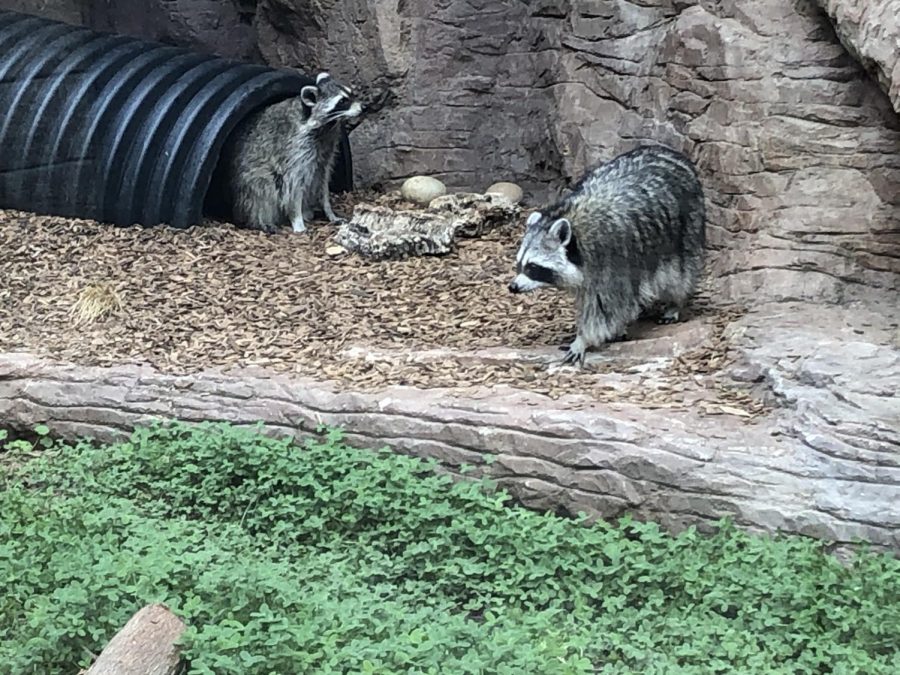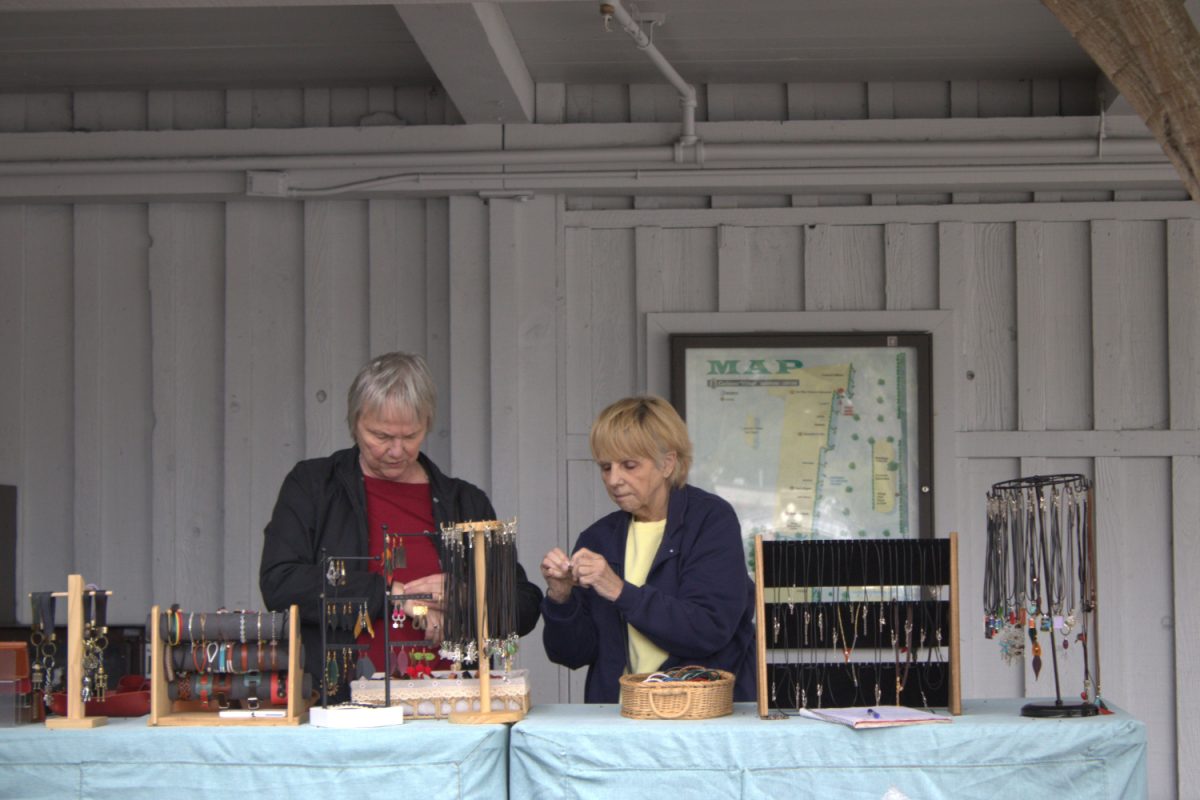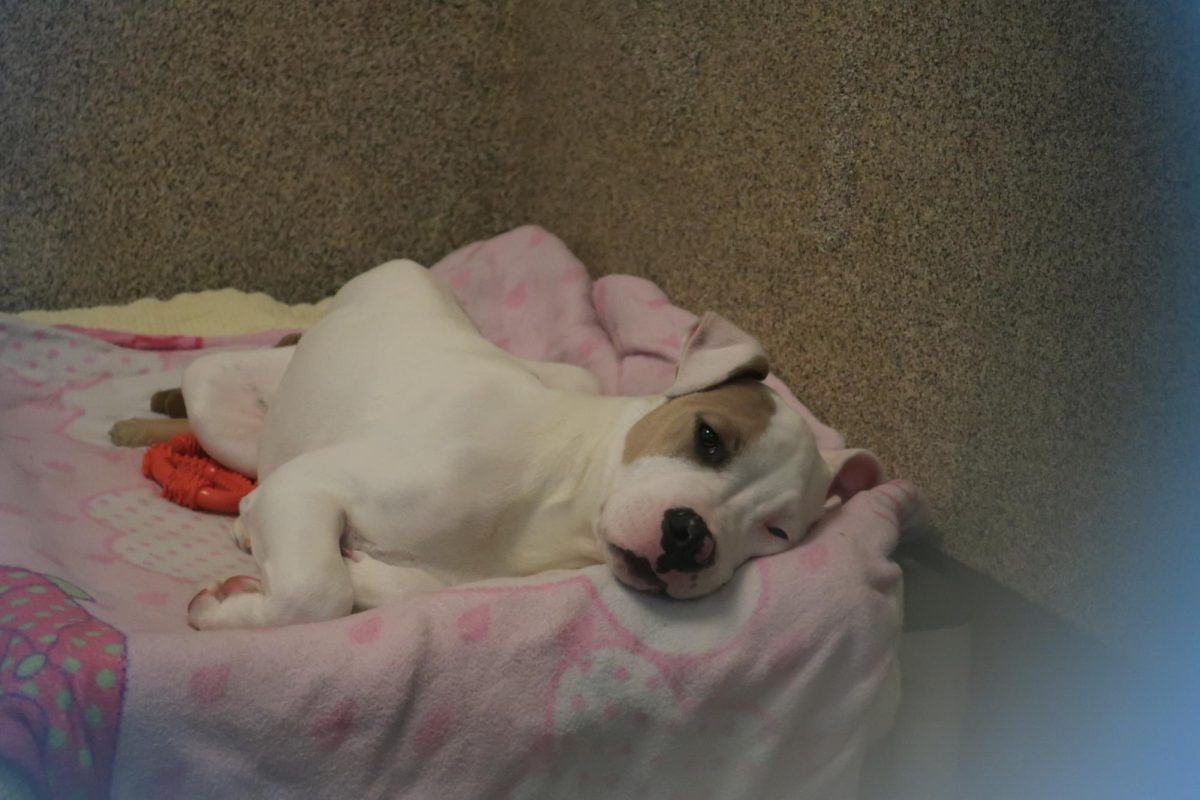As people feel trapped at home with nowhere to go, CuriOdyssey’s outdoor zoo provides refuge from the quarantine and a place to reconnect with the community.
CuriOdyssey has created its exhibit to follow county guidelines. One must wear a mask at all times and remain six feet away from others. Additionally, families must follow a one-way path to eliminate walking by another person.
But, despite these changes, many of the zoo’s exhibits are still the same. It features dozens of animals, optical illusions, and the Autumn Nights exhibit.
All animals at coyote point are non-releasable, meaning that they are unfit for survival in their natural habitats. As a result, CuriOdyssey takes them in and provides them with a new home: the zoo. In addition to the animals, there are also illusion exhibits with panels that display different optical illusions and the Autumn Night exhibit, which includes a pumpkin patch.
“People can go around and interact but not touch. That [creation of COVID-19 safe exhibits] was quite a challenge,” said Experience Curator Jan Scardina.
These events offer relief from the boredom some feel at home. Families can leave the house and experience nature, breaking up the day-to-day routine of self-isolation.
“Parents have said it’s nice to get out and do something fun with the kids,” Scardina said. “There was one mom last week who said ‘I so needed this.'”
People who may have to miss out on trick-or-treating can also get a fun experience. During the Autumn Nights festival on Fridays and Saturdays, children can dress up in costumes as they did in past Halloweens.
“At least they can celebrate Halloween in some way,” Scardina said.
Unfortunately, CuriOdyssey has decided to keep their indoor exhibits closed to fit with county regulations. According to the County of San Mateo, residents are currently in Tier 2 of our four-tier system (Tier 1 being most intense). This means museums like CuriOdyssey can open indoor exhibits with a 25% capacity or a maximum of 100 people. However, many of CuriOdyssey’s indoor activities rely heavily on human interaction to function correctly, so they are closed for now.
“We are trying to develop all of our hands-on activities,” Rios said. “We’re trying to make them foot pedals.”
In this system, people could push a button on the floor, manually running an activity. Additionally, some of the exhibits could be motorized and would still allow one to experience the indoor display.
But, just like all places during quarantine, new social distancing rules have made life harder for business.
“We used to have 1600 people come on a weekend, but now we only get a couple hundred maybe,” Rios said. “It is hard because we are a nonprofit, so we are not part of any county support. We have to rely on people visiting to take care of the animals.”












